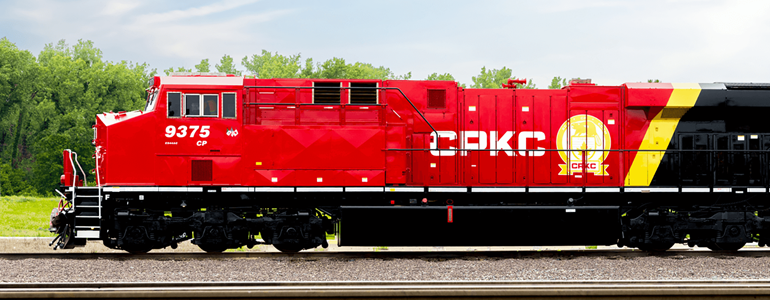
Several organizations in agriculture have expressed their satisfaction that the federal government finally took action and invoked section 107 of the Labour Act to put an end to the labour strike on August 22.
The Canada Industrial Relations Board (CIRB) ordered binding arbitration on CN, CPKC and the Teamsters Canada Rail Conference (TCRC) on Sunday, August 25, 2024. The Teamsters say they will appeal the decision, but have instructed their union workers to go back to work.
The railways pre-lockout had already stopped grain from flowing, and experts predict it will take several weeks to get everything caught up and back up to speed. The combined impacts on Canadian grain farmers due to a work stoppage are estimated to be between $40 million and $50 million a day for the next two months. Export markets (where much of our grain and fertilizer is shipped) were watching markets carefully and looking for new sources of these key Canadian exports.
“The Wheat Growers have called for the government to take decisive action since May 2024. Agriculture and all other industrial sectors have been held hostage by this rail strike,” stated Gunter Jochum, President.
“We need to keep grain moving. Farmers rely on a healthy transport system to move grains both domestically and to international export markets. If rail is not available to farmers and the agricultural industry, it will put a lot of pressure on the full transport system,” said Jeff Harrison, Chair, Grain Farmers of Ontario.
“This has been a tough year for farmers, with uncertain weather negatively affecting our planting season, higher costs that are building beyond our control, including the increasing carbon tax, fertilizer tariffs, and more. We need to see this strike come to a conclusion as soon as possible.”
“Fertilizer Canada thanks Minister Steven MacKinnon and the federal government for their swift action to resolve the rail labour disruptions and get our trains moving,” said Karen Proud, President & CEO, Fertilizer Canada, in a media release. “We are pleased to see the government’s acknowledgement of the need for short and long-term solutions and its commitment to investigating the issues leading to the dual rail strike.”
“Protecting our supply chains is vital in maintaining our competitiveness and reputation as a reliable trading partner. As noted by the government, it is crucial our potash reliably reaches our customers to ensure they do not have to turn to competitors like Russia, Belarus, and China.”
Before the strike many of these same organizations had implored the government to take pre-emptive action to prevent a rail strike and were disappointed when the government was not pro-active.
By involving Section 107 of the Canada Labour Code, the government directed the Canada Industrial Relations Board (CIRB) to help the parties to settle outstanding terms of their collective agreements with binding arbitration.
“As minister of labour, I’m using my authorities … to secure industrial peace and deliver the short- and long-term solutions that are in the national interest,” MacKinnon said when he put an end to the strike on August 22, 2024.
